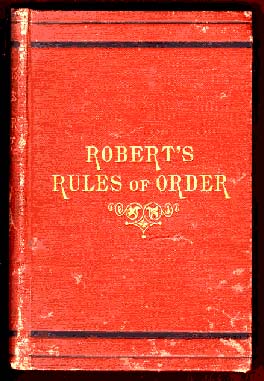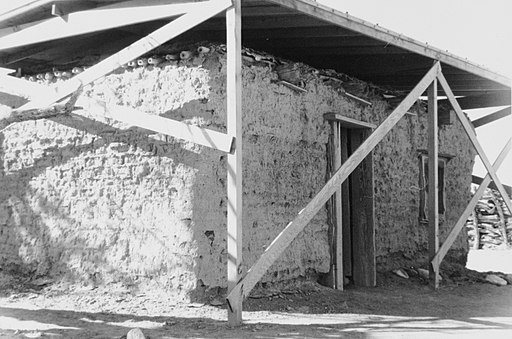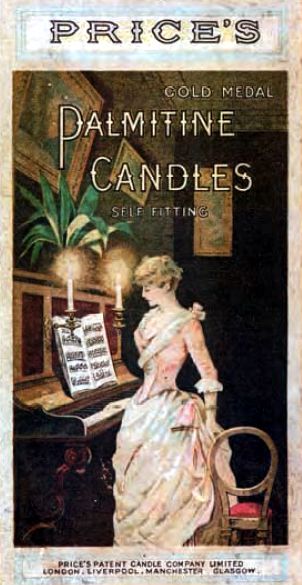Here’s another set of terms and forgotten people gleaned
from early western stories. Definitions were discovered in various online
dictionaries, as well as searches in Cassell’s Dictionary of Slang,
Dictionary of the American West, The New Encyclopedia of the American West, The
Cowboy Dictionary, The Cowboy Encyclopedia, and
The Shorter Oxford English Dictionary.
These are from Frederick Thickstun Clark’s In the Valley
of Havilah, about the fortunes of an
itinerant family in the California gold fields; Lewis B. France’s Pine
Valley, about prospectors in the mountains
of Colorado; and Alfred Henry Lewis’ Wolfville, about life in an Arizona cow town. Once again, I
struck out on a few. If anyone has a definition for “whiskey chip,” “soup on
ice,” or “turn a split,” leave a comment below.
allow = to say, concede, admit, believe, be of the opinion
that. “I don’t allow Billy’s got the nerve to marry this yere Marie.” Alfred
Henry Lewis, Wolfville.
apple grunt =
a dessert of baked apples and biscuit
topping, served upside down. “They were eating their dessert,—the ‘apple grunt’
which Maude Eliza had eulogized the day before.” Frederick Thickstun Clark, In
the Valley of Havilah.
beef = to slaughter, knock down. “‘I knows men,’ Jack remarks
at the close, lookin’ wistful at Enright, ‘as would beef him right yere an’
leave him as a companion piece to that compadre of his you
downs.’” Alfred Henry Lewis, Wolfville.
bombazine =
twill fabric of a silk or cotton and wool
blend, usually dyed black for mourning wear. “She performed the service in a
bombazine gown and a check apron, with the solitaire brilliantly holding a red
ribbon about her neck.” Lewis B. France, Pine Valley.
bulge in/out =
to intrude, assert oneself, get busy doing
something. “After awhile the sharp who’s dealin’ for ’em goes on with them
petitions I interrupts as I comes bulgin’ in.” Alfred Henry Lewis, Wolfville.
cheese it =
stop it, be quiet. “’I don’t make no
promises I can’t keep—what is it?’ ‘That you will quit gambling.’ ‘Cheese it,
Hank Ballard.’” Lewis B. France, Pine Valley.
chop = to stop. “Oh, chop on yellin’ ’n’ let’s hear!” Frederick
Thickstun Clark, In the Valley of Havilah.
clapboards =
wainscoting. “Within five years from the
time Mrs. Herrick disposed of the clapboards and carpets, the Colonel had put
behind him fifteen years at least and excited no interest.” Lewis B. France, Pine
Valley.
clatter = a time, each. “The kyards begins to come two at a
clatter at faro-bank.” Alfred Henry Lewis, Wolfville.
corn-fed =
plump, substantial, good-looking. “It
shore strikes me now, when years is passed, as some marv’lous how a han’some,
corn-fed female like Tucson Jennie manages to found a fight with Dave over this
yere towerist woman.” Alfred Henry Lewis, Wolfville.
cuddy = small room, closet, or cupboard. “In that cuddy,
with the uppermost log lying a foot or more above and across him, was the
baby.” Lewis B. France, Pine Valley.
 |
| Grace Darling, c1839 |
dead work =
unproductive work. “The ‘dead work’ had
not been confined to Golddust and Pine Valley Bar; it embraced the Colonel’s
mining interests.” Lewis B. France, Pine Valley.
drag a lariat =
to interfere. “She’s not to go draggin’
her lariat ’round loose no more, settin’ law an’ order.” Alfred Henry Lewis, Wolfville.
fin = hand, arm. “‘Workin’ with your fins,’ says this
Wilkins, ‘is low an’ onendoorin’ to a gent with pride to wound.’” Alfred Henry
Lewis, Wolfville.
flitch = a side of bacon, or halibut steak. “It was a laugh
not born of, though it might have been fed upon, flitch and potatoes, and hence
was not irritating.” Lewis B. France, Pine Valley.
forty drops =
alcohol (40 drops equal ½ teaspoon);
“Forty Drops,” a popular 1890s rag tune. “We’re all in the Red Light takin’ our
forty drops, an’ Sam Enright brings up this yere Wilkins.” Alfred Henry Lewis, Wolfville.
from the jump =
from the beginning. “It’s cl’ar from the
jump he ain’t meant by Providence for the cattle business.” Alfred Henry Lewis,
Wolfville.
 |
| 1876 edition |
hooker = a drink. “Thar’s nothin’ for it but to give him
another hooker, which we does accordin’.” Alfred Henry Lewis, Wolfville.
hoss on/onto =
a disadvantage. “This deficiency in
sky-pilots is a hoss onto us, but we does our best.” Alfred Henry Lewis, Wolfville.
I’m a Mexican =
derogatory reference to Mexicans,
expressing surprise and disbelief. “I’m a Mexican if this yere Sal don’t come
wanderin’ in, a-cryin’ an’ a-mournin’ powerful.” Alfred Henry Lewis, Wolfville.
injun = to sneak around, creep up on. “While she’s gone I
injuns an’ spies ‘round a whole lot.” Alfred Henry Lewis, Wolfville.
 |
| Japanned tray, 1850 |
keep case =
note cards as they are dealt; watch
closely. “I’m doin’ business at the table myse’f at the time, an’ keepin’
likewise case on the game.” Alfred Henry Lewis, Wolfville.
let fly = to suggest. “I simply let’s fly this hint, so any of
you-alls as has got bric-a-brac he values speshul, he takes warnin’ some an’
packs it off all safe.” Alfred Henry Lewis, Wolfville.
lot on = count on, rely on. “She ain’t lottin’ much on me
nohow.” Alfred Henry Lewis, Wolfville.
pervade = to move or move about. “A passel of us is sorter
pervadin’ ’round the dance-hall.” Alfred Henry Lewis, Wolfville.
piroot = to go, travel, move about, explore. “The hawg comes
pirootin’ about Hoskins’s fence, an’ he goes through easy.” Alfred Henry Lewis,
Wolfville.
project = to wander around, stroll. “Along projects a Mexican
with a pair of burros he’s packin’ freight on.” Alfred Henry Lewis, Wolfville.
promiscuous =
freely. “Up on both sides a select
assortment of Winchesters begins to bang an’ jump permiscus.” Alfred Henry
Lewis, Wolfville.
saw off = to bestow upon, part company with. “Jerry has shore sawed off a sore affliction on that tenderfoot when he takes in them teeth; I can see that.” Alfred Henry Lewis, Wolfville.
saw on/onto =
to be given responsibility for. “You can bet anythin’ which gets sawed
onto me as my dooty goes, an’ don’t make no doubt about it.” Alfred Henry
Lewis, Wolfville.
 |
| Adobe line camp, Arizona, 1917 |
single footer =
an unmarried person. “If they’s
single-footers like me an’ ain’t wedded none; campin’ ’round at taverns an’
findin’ of ’em mockeries; they wishes they has a wife a whole lot.” Alfred
Henry Lewis, Wolfville.
spread-eagle =
high-sounding, impressive, grandiloquent.
“Thar’s nothin’ too rich for our blood, an’ these obsequies is goin’ to be
spread-eagle, you bet!” Alfred Henry Lewis, Wolfville.
stand up =
to hold up (at gunpoint). “If they ever
gets a motion to stand up the stage, they’s shore due to be in this canyon.” Alfred
Henry Lewis, Wolfville.
 |
| Advertisement, stearine candles |
straggle =
to wander off, stray. “It’s a day straggled from heaven, ain’t it?” Frederick
Thickstun Clark, In the Valley of Havilah.
stretch = to hang, kill. “I challenges any gent to put his
tongue to an event where a vig’lance committee stretches a party who ain’t in
need tharof.” Alfred Henry Lewis, Wolfville.
three cheers and a tiger = cheers followed by a
long, drawn-out shriek, often of the word “tiger.” “At the grave we turns in
an’ gives three cheers for King, an’ three for Doc Peets; an’ last we gives
three more an’ a tiger for the camp.” Alfred Henry Lewis, Wolfville.
toper = heavy drinker. “Some of them being as lavish of
promises as a toper on the road to reform.” Lewis B. France, Pine Valley.
tub camp =
laundry. “S’pose you canter up to his
tub-camp an’ bring him over, and’ we’ll reveal this upheaval in his
shirt-burnin’ destinies by word of mouth.” Alfred Henry Lewis, Wolfville.
tub trundler =
laundryman/woman. “This yere
tub-trundler’s name is Lung, which, however, brands no cattle yere.” Alfred
Henry Lewis, Wolfville.
underhand stoping =
the working of an ore deposit from the top
downwards. “He would be compelled to a little ‘underhand stoping in another
level’; and a very low level it was that he contemplated.” Lewis B. France, Pine
Valley.
wire edge =
the thin wire-like thread of metal sometimes formed on
the edge of a tool (as a chisel or razor) in attempting to sharpen it.
“For the next week thar ain’t no washin’ done whatever, while Benson Annie an’
Sal works the wire aige offen their visit.” Alfred Henry Lewis, Wolfville.
Image credits:
Wikimedia Commons
Coming up: George Tower Buffum, Smith of Bear City (1906)

I've heard Injun used that way. I think we used it as a kid that way. Some of the others too. Apple Crump sure sounds familiar.
ReplyDeleteSome of these are hilarious, just like the book Wolfville.
ReplyDeleteI'd guess that the use of "turn a split" in Wolfville is a reference to the game of faro, in which if the dealer turns up a "split" (meaning both the bank card and player's card in a turn are the same denomination), the bank takes half of any bet on that card. Thus the player neither wins nor loses the turn, but loses some money.
ReplyDelete"Keep case" is also a faro term. It does mean to keep track of cards, specifically by using the faro "casekeeper" (also called simply the "case"), an abacus-like frame with a sliding bead or button for each card in the deck). The progress of a faro game could be tracked by watching the casekeeper, as it ticked off cards already played (by denimination only; suits are irrelevant in faro).
ReplyDeleteFor further confusion, the person operating the device was also known as the casekeeper. It was not unheard of for a player at a table to act in this capacity ("keep case"), so when Lewis' character says that he's “doin’ business at the table...an’ keepin’ likewise case on the game,” he probably means literally that he's operating the casekeeper while also placing bets as a player.
Thanks, JR, for elaborating on this subject. I've found that many faro and poker terms were used metaphorically as well as literally. Here's the context for "turn a split": Texas Thompson, who has troubles with his wife, says, "She ain't lottin' much on me nohow, an' if the correspondence between us gets much more fitful, she's goin' p'intin' out for a divorce. This deal's liable to turn a split for me in my domestic affairs."
ReplyDeleteWow. Straggle off for a couple weeks and a fellar comes back to a whole bunch of fine blog posts. It'll take me 'til Friday to get caught up. Thanks for another swell batch of jargon. We used straggle and straggler all the time back on the farm.
ReplyDelete